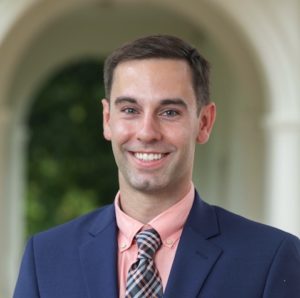
Dr. Jonathan Foster is a Postdoctoral Research Associate at the University of Virginia, School of Education and Human Development. He holds a Ph.D. in Mathematics Education from University of Georgia and a B.S. in Mathematics from Wofford College. After getting his undergraduate degree, Jonathan taught a wide range of high school mathematics courses before embarking on his doctoral studies. As a former math teacher, he brings a unique perspective to his interdisciplinary research on teacher education, discourse, and artificial intelligence (AI). Please follow Jonathan on Twitter @fostermathed.
How did you choose your field of study? Was there a pivotal event that sparked your interest?
While I was teaching high school mathematics, I stumbled upon the MathEd Podcast hosted by Sam Otten at the University of Missouri. The podcast was my first exposure to research in mathematics education and developed my interest in pursuing a Ph.D. in mathematics education. During my graduate studies, I further developed my interests in teacher education and argumentation by working on projects to support teachers in learning to facilitate argumentation.
Describe your research in five words.
Advancing Argumentation with Artificial Intelligence.
Please share a bit more about your research in one to three sentences.
My research brings together teacher education, artificial intelligence, and argumentation in STEM education. Teachers make many complex decisions when facilitating argumentation, such as what questions to ask, when to probe ideas, and even how to display and keep track of students’ ideas. I seek to understand how human language and computer vision technologies, imbued with artificial intelligence, support teachers in learning how to facilitate argumentation.
What do you hope to learn about as you participate in the Emerging Scholar CIRCLS?
CIRCLS exposed me to how other scholars are imagining new questions for and inventing applications of computing in the learning sciences. I am inspired by their vision. Go check them out! I hope to learn how other scholars are navigating these innovative and interdisciplinary waters.
What are your passions outside of work and research? And why are they important to you?
I love to travel. When traveling, I appreciate the opportunity to learn about other cultures. Traveling has allowed me to reexamine my experiences and beliefs from new perspectives. I also love hearing about others’ adventures while traveling.
If you could offer one piece of advice to your past, pre-graduate school self, what would it be?
There will be many opportunities that come your way that you will feel out of your depth. Embrace those opportunities as a time to grow professionally.
